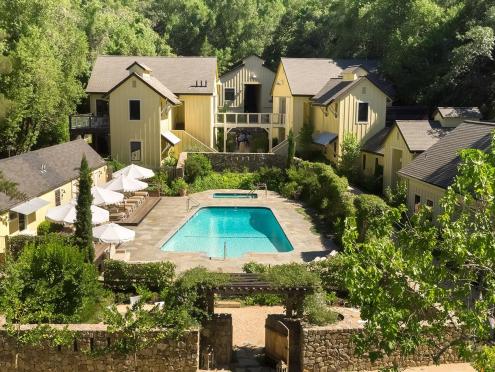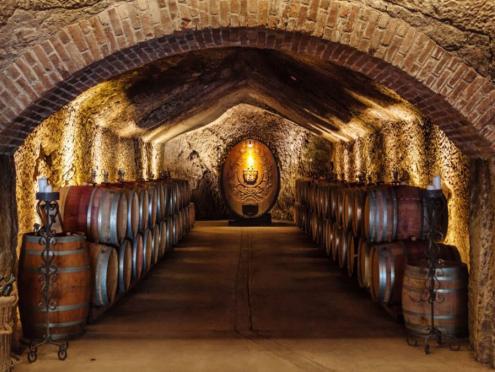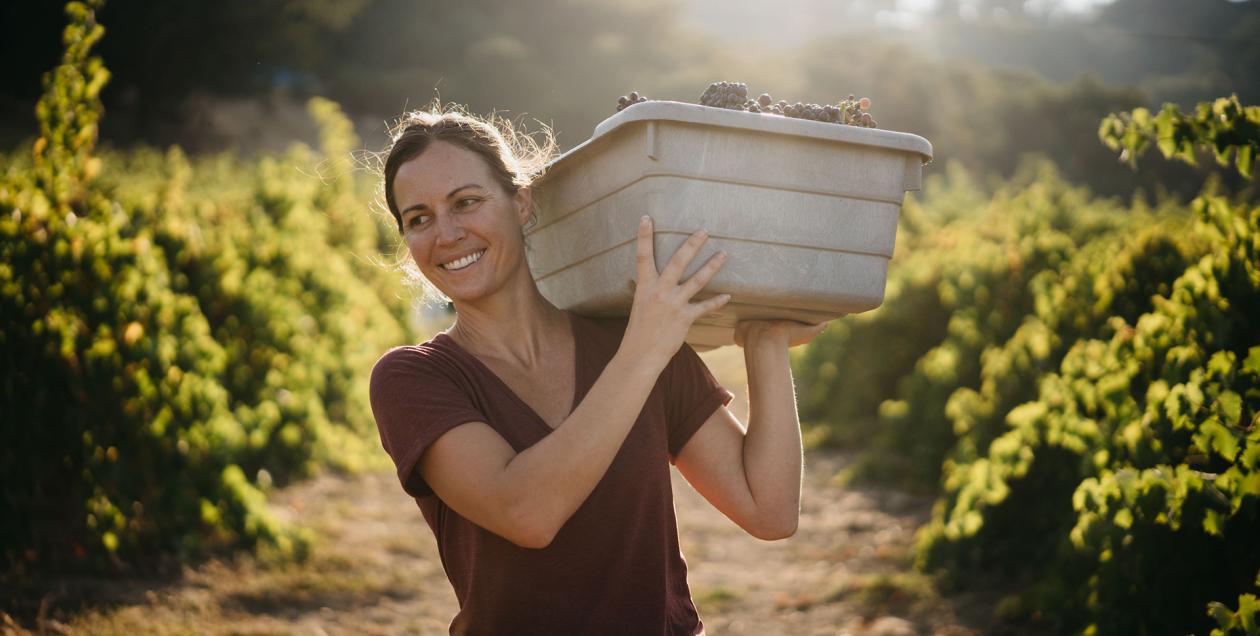
5 Female Vintners Working for a Greener Future
As both the birthplace of Women’s History Month and the first wine region in the world to earn sustainable certification for 99% of its vineyards, Sonoma County is a place where female leaders have consistently demonstrated strong leadership and environmental responsibility. We’ve chosen to highlight a few favorite women winemakers and winery owners who have tackled daunting environmental challenges, pushed the envelope about what “sustainability” really means, and shown outstanding commitment both to the natural world and the community.
Jasmine Hirsch, Hirsch Vineyards, Cazadero
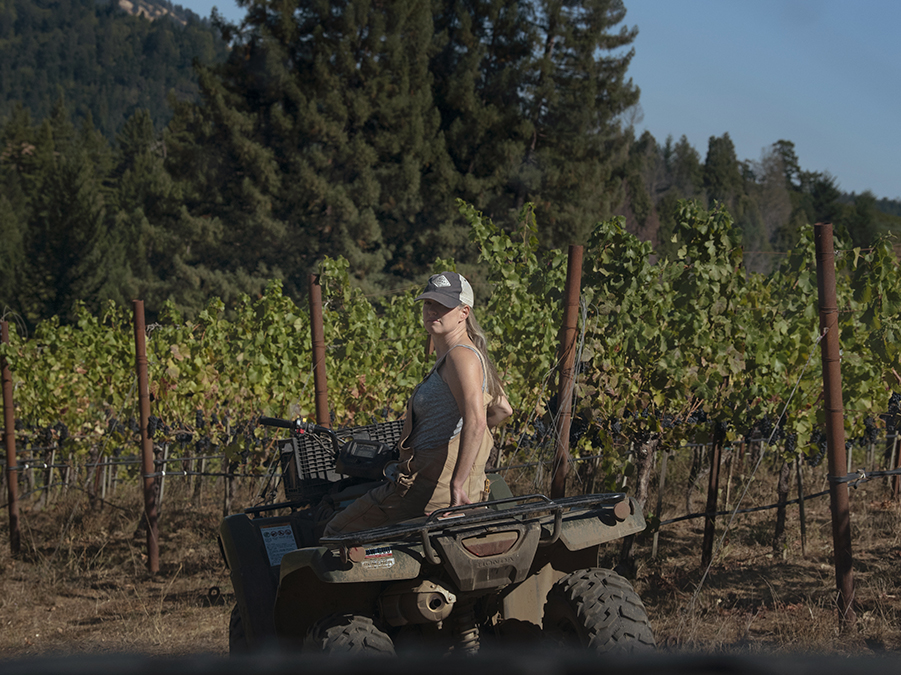
“I’m worried about climate change as a human being on this planet – but also as a farmer,” says Jasmine Hirsch, winemaker and general manager of Hirsch Vineyards. Yet despite the challenges, she says, “I am optimistic.”
Growing up on the family ranch, Jasmine developed a strong sense of her role and responsibility as a land steward. In 1973, her father, David Hirsch, acquired 1,000 acres of high-elevation property near Cazadero. Due to rampant logging in the area during the 20th century, much of the land had been clearcut of its native redwood trees and was deeply scarred. “It was in terrible shape,” says Jasmine.
In order to fund the property’s reforestation, her father planted grapes, which he would later sell to some of the most renowned wineries in the area. With 72 acres of the ranch under vine, the family committed themselves to healing the damaged land – and along the way, farming responsibly.
Officially joining Hirsch Vineyards in 2008, Jasmine has since become a leading voice for sustainability in California and beyond. In 2011, she led the vineyards’ conversion to biodynamic farming; later, she co-founded “In Pursuit of Balance,” an influential international event series examining the benefits (environmental and otherwise) of natural winemaking. In 2019, she took the helm as Hirsch Vineyards winemaker, opening a new chapter in her career.
Expanding upon her family’s legacy of earth-friendly farming and minimal intervention in the production cellar, Jasmine says, “The best way to be more sustainable is to consume less … meaning less inputs in the vineyard and cellar.” So, she explains, “Winemakers working to express a sense of place are already partway on the path to sustainability.”
Suzanne Hagins, Horse & Plow, Sebastopol
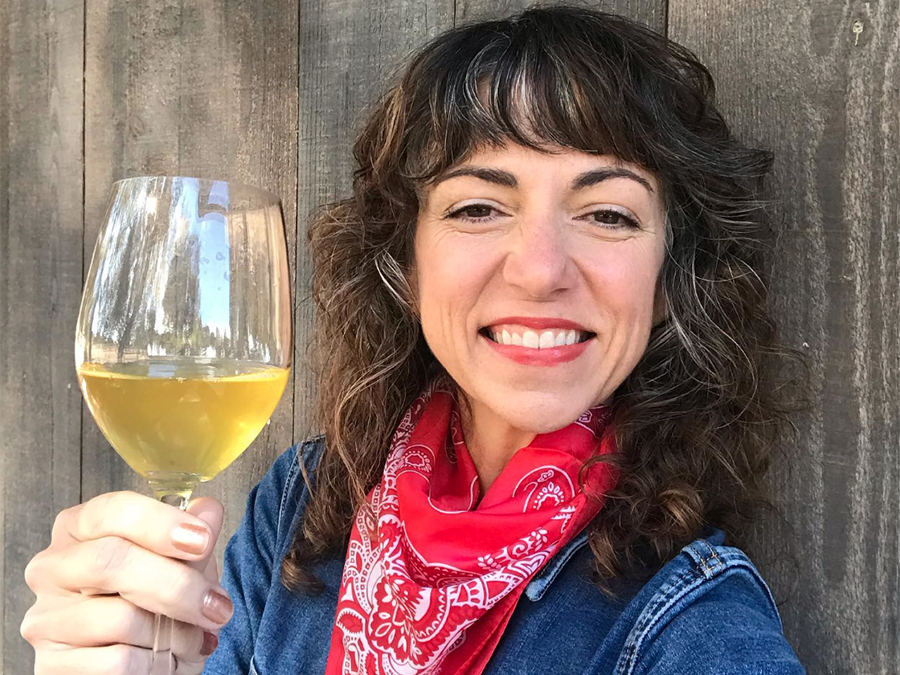
Walk into the Horse & Plow tasting room, housed in a rustic barn and surrounded by two acres of organic gardens, and you’ll have the option of buying a refillable one-liter growler of wine or cider. Introducing reusable bottles to customers is just one way that Suzanne Hagins, who co-founded the winery 15 years ago, has built a greener business.
According to iPoint, a global consulting firm for environmental and social compliance, the carbon footprint of a bottle of wine is 1,214 kg of carbon dioxide, or roughly the equivalent of driving a car three miles. Nearly half of that carbon output comes not from grape production nor transportation, but packaging. In recent years, this has become a critical topic for both consumers and industry pros working to solve the problem. Suzanne has been working ahead of this curve.
As for the wine itself? “All of our grapes are grown organically, both for higher quality and the environmental benefits,” Suzanne says, adding, “We also make cider, which helps preserve local orchards and agricultural diversity in our area.”
Integral to the history of Sonoma County, the apple is a highly drought-resistant crop. As a bonus, it does not typically reveal smoke taint.
All fruit for Horse & Plow is sourced from non-GMO sites, then fermented without synthetic nutrients or additives. The resulting wines and ciders are vegan and contain very low sulfites.
“We care deeply about our community and try to make great wine and cider responsibly,” says Suzanne, “while reducing our use of resources, inputs, and waste.”
Cristina Torres, Marimar Estate, Sebastopol
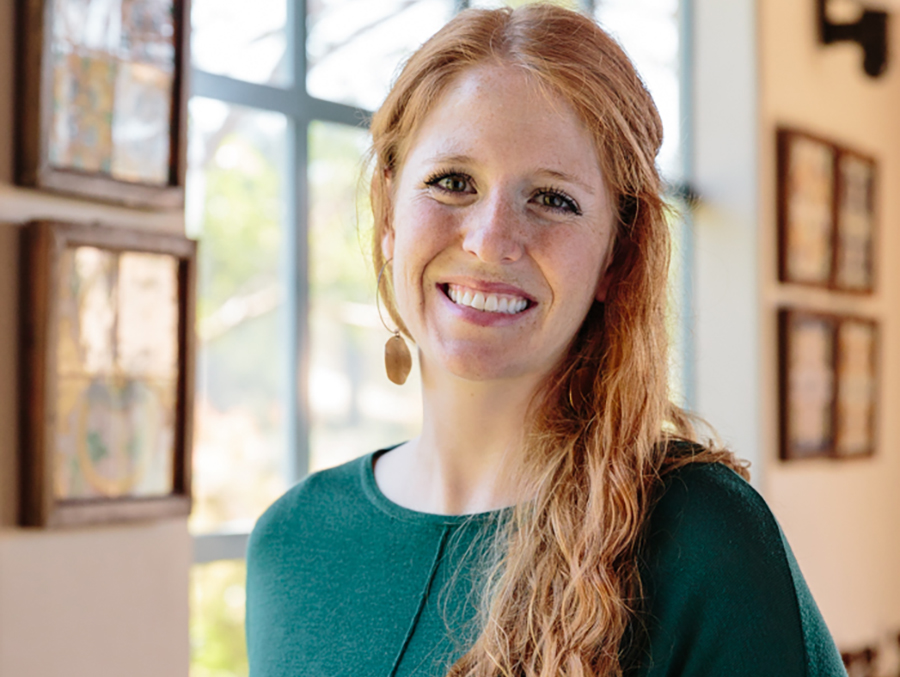
Next-generation business leaders often face a question: How does one preserve time-honored traditions of the past while forging a new path ahead? Cristina Torres, fifth-generation member of Familia Torres and newly appointed general manager of Marimar Estate, is confident that path must be a sustainable one.
Taking the reins from her mother, Marimar Torres, Cristina will uphold the legacy of her family, which has been a prominent force in Spanish winemaking for centuries and first came to live in Sonoma County in 1975. She is committed to addressing the environmental impact of the winery.
“We pride ourselves on environmentally sound growing practices such as promoting soil health, biodiversity, and integrated pest management,” says Cristina. “We have been free of herbicides and insecticides on both of our vineyards for years.”
The certified-sustainable winery operates on solar energy and utilizes 100% recyclable packaging. This year, the winery will be joining International Wineries for Climate Action (IWCA), an effort Cristina helped spearhead in 2019 alongside Familia Torres of Spain and Jackson Family Wines of California.
She promises, “There are many more exciting things to come on our journey.”
Anisya Fritz, Ph.D., Lynmar Estate, Sebastopol

“Everything we do is intended to help the land thrive – not just survive.”
Anisya Fritz, Ph.D., runs a dynamic 100-acre wine estate, but that’s not even the most impressive credit to her name. Also an accomplished author, professor, and philanthropist, the owner of Lynmar Estate in Sebastopol has been widely recognized for her outstanding leadership, from environmental efforts to championing small businesses.
Founded in the early 1980s by her husband Lynn Fritz, Lynmar Estate is situated on the western edge of Laguna de Santa Rosa, a tributary of the Russian River and home to a vast array of wildlife. As a carbon-negative, certified-sustainable, certified-bee-friendly winery, Lynmar is part of the new Climate Adaptation Certification program that’s being led by Sonoma County Winegrowers and California Land Stewardship Institute.
With the new program, Anisya explains, “We are creating our own land management protocol developed specifically to address the sequestration of nitrous oxide and carbon emissions. This allows for us and fellow growers to understand best practices for climate mitigation in the vineyards.”
When it comes to those best practices, Lynmar Estate has a good head start. The winery already runs on solar power, practices dry farming, processes and filters winery wastewater, and hand-cultivates grapes, flowers, herbs, orchards, and other gardens.
“If wine is the sum of all its parts,” says Anisya, “we want our wines to reflect the care and love we invest into every facet of our estate and celebrate wine as a force for good.”
Martha Stoumen, Martha Stoumen Wines, Sebastopol
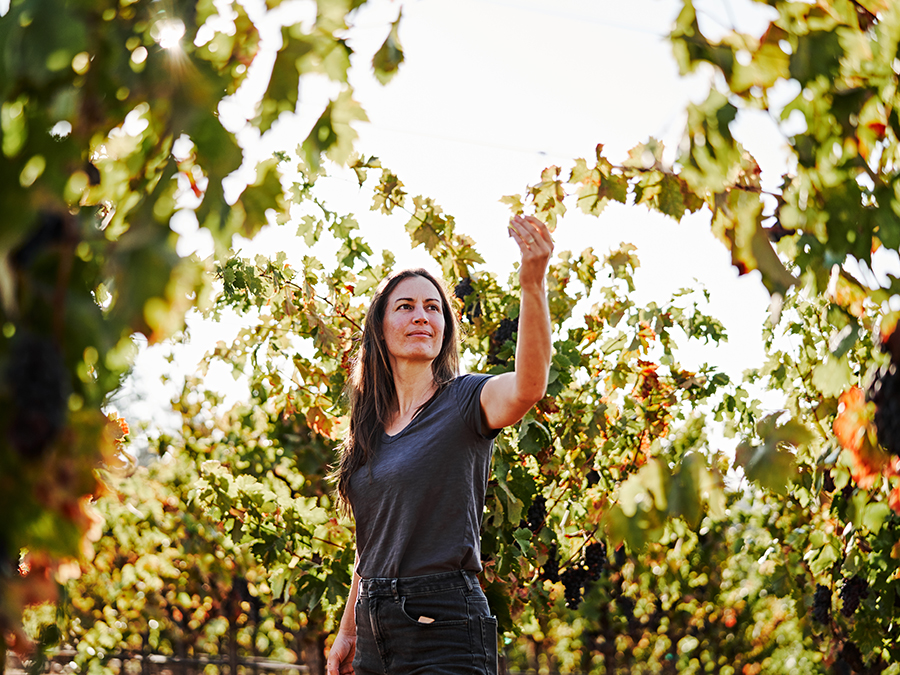
How does a small company make a big impact? Ask Martha Stoumen, who The San Francisco Chronicle has called a “poster child for the California natural wine movement.” Cultivating what she calls a "culture of patience" in the vineyard and cellar, the Northern California native quickly established herself as a tastemaker when she released the first vintage from her namesake winery in 2017.
Like most wineries in the United States – as many as 97% – Martha Stoumen Wines is categorized as “small,” making 10,000 cases per year in a cooperative winery space.
“A winery of our size doesn’t have nearly as much control over our sustainability decisions in our supply chain as wineries with more integrated supply chains,” explains winery representative Nina Kravetz. “That's why we put our energy where it counts most – the land.”
The winery does not own land, but instead contracts fruit and leases small vineyards, only selecting vineyards with the utmost ethical alignment. Most fruit comes from vineyards that are not only organic, but dry-farmed, or without irrigation. In addition to being better for the planet, dry-farming makes reliably delicious wines.
One aspect of the winery that sets it apart is a commitment to transparency. “We believe in sharing the art, romance, and pleasure of wine with our community,” says Nina. “It's our responsibility to be honest about our practices.”
To learn more about Martha Stoumen Wines and see her in action, check out the award-winning short film, “California Natural.”
Written by Amy Bess Cook





